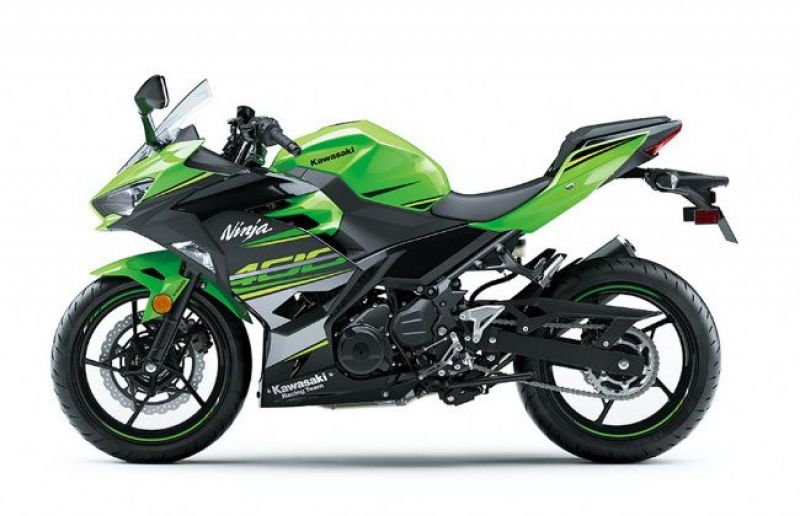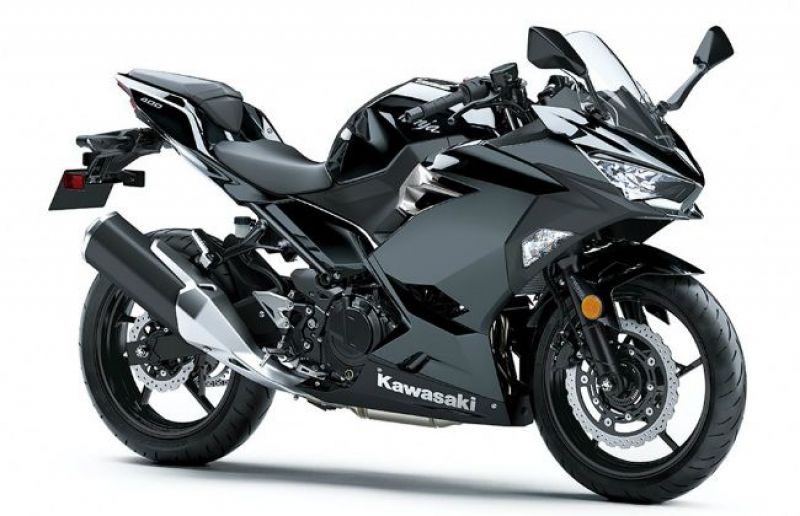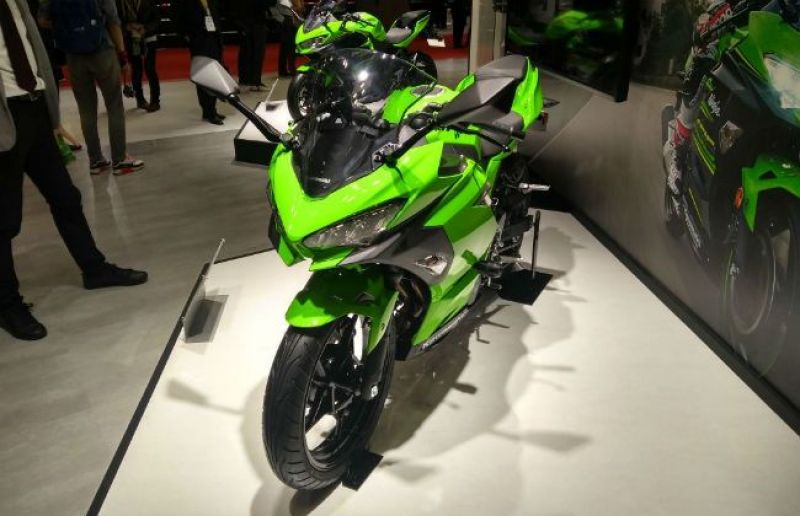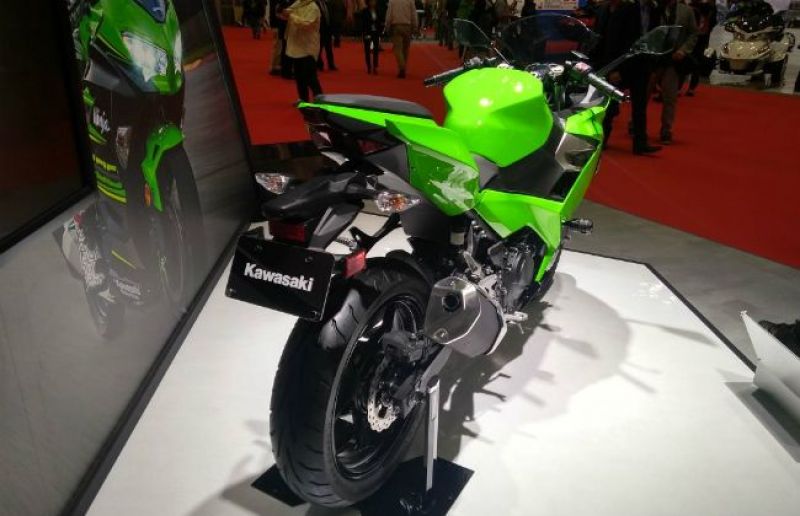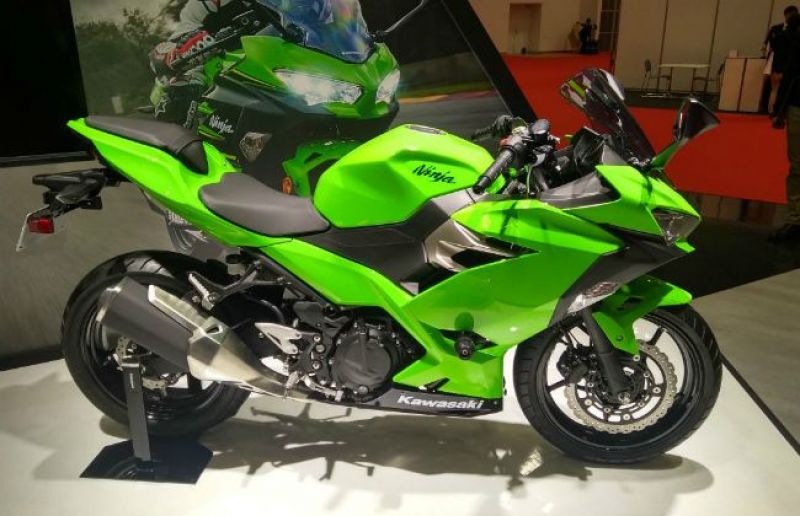Kawasaki unveils Ninja 400 and 250 at 2017 Tokyo Motor Show
New Ninja also features a 310mm semi-floating disc with Nissin calipers and ABS.
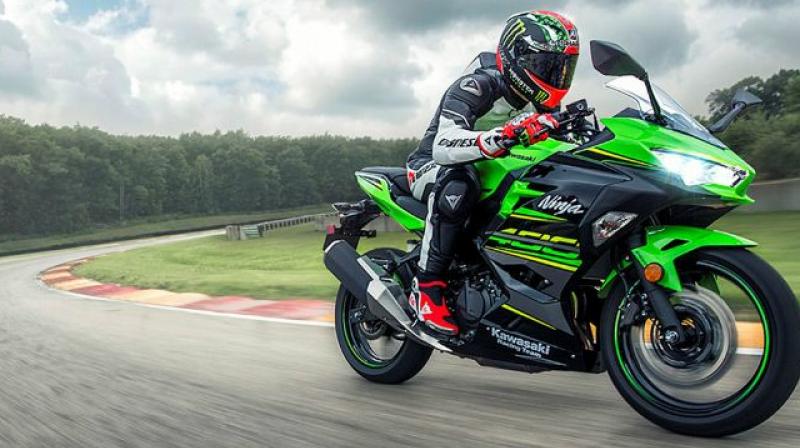
Kawasaki has unveiled the Ninja 400, which is slated to replace the old Ninja 300 in the European markets. The reason behind this step is the Ninja 300’s non-compliance with Euro-IV emission norms. Kawasaki has also launched an upgraded version of the smaller Ninja 250.
In terms of design, the Ninja 400 features a larger bodywork, inspired from the H2. It gives the new Kawasaki offering a substantially bigger and wider stance than its predecessor. The 2018 Kawasaki Ninja 250, on the other hand, gets an all-new front with a sharp nose and a twin headlamp setup. The fairing is also redesigned to give it a more modern and sharp look.
The new 2018 Kawasaki Ninja 400 packs a larger 399cc parallel-twin engine, which produces 45PS of power and 38Nm of torque. According to the company, the new Ninja 400 offers a better low-end torque, while maintaining a smooth throttle response. The Ninja 400 now also comes equipped with assist and slipper clutch which will make the lever 20 per cent lighter to pull.
The 2018 Kawasaki Ninja 250 draws power from a 249cc parallel twin-cylinder, engine which churns out 38.9PS and 23.5Nm of peak torque. The transmission is handled by a 6-speed gearbox. It packs 6PS of more power than its predecessor and at 167 kg, it sees a drop of 3kg in its weight.
When compared to the Ninja 300, the Kawasaki Ninja 400 is 6kg lighter, at 168kg (wet), thanks to the new steel trellis frame. The new Ninja also features a 310mm semi-floating disc with Nissin calipers and ABS. In terms of ergonomics, the Kawasaki Ninja 400 has a seat height of just 786mm, making it accessible for every type of rider.
While the Kawasaki Ninja 250 isn’t expected to make it to the Indian market, the Kawasaki Ninja 400 will rival the KTM RC 390 and the BMW G 310R, if launched in the country. However, it still remains to be seen when Kawasaki will launch the Ninja 400 in the Indian market.
Source: BikeDekho.com

